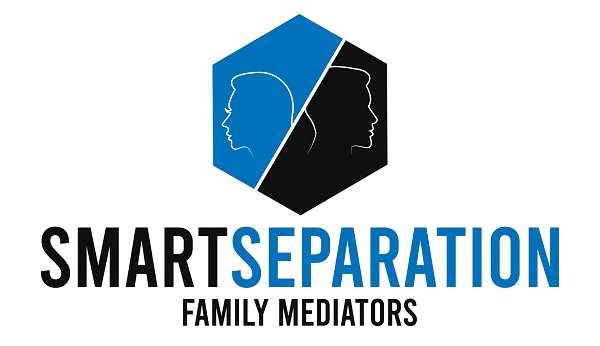Defining High-Conflict Divorce Situations
High-conflict divorce situations are among the most emotionally taxing and legally complex separations in Ontario. While every divorce involves some degree of disagreement, high-conflict couples typically face entrenched disputes that make cooperation difficult. Mediation can still be a viable and effective option, but it must be approached with careful planning and professional support.
Characteristics of High-Conflict Couples
High-conflict couples are generally defined by persistent hostility, poor communication, and a lack of trust. These divorces are often marked by:
- Frequent and unresolved arguments, even over small issues
- Blame-shifting and refusal to take responsibility
- Emotional reactivity or volatility
- Difficulty focusing on solutions or the future
- An ongoing cycle of conflict that may continue even after separation
These behaviours often spill over into the mediation process unless properly managed.
Common Issues Involved: Parenting Disputes, Financial Control, Emotional Manipulation
High-conflict divorces often involve parenting disagreements that escalate beyond typical co-parenting challenges. Disputes may centre on:
- Custody and access schedules
- Decision-making for the child’s education, health care, or religious upbringing
- Allegations of parental alienation or manipulation
Financial issues are another flashpoint. One party may attempt to control or conceal finances, delay support payments, or use money as a form of retaliation. Emotional manipulation, including gaslighting and intimidation, may also be present—making it difficult for one or both parties to negotiate in good faith.
How Ontario Family Law Views High-Conflict Dynamics
Ontario’s family law system recognises the impact high-conflict dynamics can have on separation, parenting, and dispute resolution. Family courts in Ontario prioritise the best interests of the child, which includes shielding children from ongoing parental conflict. In severe cases, the court may order:
- Supervised parenting time
- Parenting coordination
- Mandatory counselling or family therapy
- Court-ordered mediation or case conferences
The legal system also encourages mediation wherever appropriate but requires mediators to assess whether the process is safe and productive for both parties. Accredited Family Mediators (AccFM) in Ontario are trained to screen for power imbalances and domestic violence before proceeding. In high-conflict cases, mediators may use specialized techniques, such as shuttle mediation, structured agendas, and separate sessions, to maintain control and reduce hostility.
Can Divorce Mediation Work in High-Conflict Cases?
Misconceptions About Mediation Only Working for Amicable Couples
It’s easy to assume that mediation requires a high degree of civility and agreement, but the reality is different. Mediation is not about being friends—it’s about creating a safe, neutral space where both parties can be heard, guided by a trained mediator. For high-conflict couples in Ontario, mediators often use:
- Shuttle mediation (parties in separate rooms or virtual sessions)
- Clear ground rules to manage communication
- Structured agendas to focus on specific issues
- Child-focused approaches to anchor the discussion on shared goals
These techniques allow even highly combative couples to make progress, especially when both parties are committed to resolving disputes without court intervention.
Success Stories of Mediation Even in Tense Situations
Many Ontario families facing intense conflict have still reached agreements through mediation. For example:
- Parents in bitter custody battles have agreed to parallel parenting plans
- Financial disputes over property and support have been settled without court orders
- Former partners who couldn’t speak civilly have negotiated terms through shuttle mediation
The key is the mediator’s ability to manage the process, identify points of compromise, and de-escalate conflict when needed. In many cases, mediation has helped high-conflict parties avoid court, reduce costs, and preserve their mental health—especially when children are involved.
When Mediation May Not Be Appropriate (e.g. Ongoing Abuse or Safety Concerns)
While mediation can work for many high-conflict situations, it is not appropriate in every case. If there is:
- A history of domestic violence or ongoing abuse
- Coercive control or extreme power imbalances
- Threats to personal safety
- One party unwilling to negotiate or be transparent
Then mediation may not be a safe or productive option. Accredited mediators in Ontario are required to conduct pre-mediation screening to assess suitability. In such cases, legal intervention, protective orders, or supervised proceedings may be necessary.
How Ontario Mediators Handle High-Conflict Dynamics
Use of Shuttle Mediation (Separate Rooms or Virtual Breakout Sessions)
One of the most effective techniques for high-conflict cases is shuttle mediation. In this approach:
- Each party stays in a separate room (physically or virtually)
- The mediator moves between the parties, conveying proposals and responses
- Direct interaction is minimized, reducing emotional triggers and confrontations
Structured Agendas and Time-Limited Discussions
Ontario mediators often use structured agendas to break down complex issues into manageable topics. This approach allows the mediation to:
- Stay goal-oriented rather than emotionally reactive
- Allocate specific time blocks to each issue (e.g. parenting plan, asset division)
- Avoid circular arguments or stalling tactics
By controlling the pace and direction of the conversation, mediators ensure that both parties are given equal opportunity to present their concerns—without letting anyone issue dominate the session.
Emphasis on Clear Boundaries and Respectful Communication
In high-conflict cases, mediators establish clear ground rules for how discussions are conducted. These may include:
- No personal attacks or blaming language
- Taking turns to speak, without interruptions
- Using neutral, solution-focused wording
Mediators reinforce these boundaries throughout the process and may pause or reschedule a session if the conflict becomes unmanageable. This commitment to respectful dialogue helps create a safer environment where both parties can consider options more rationally.
Ontario’s accredited family mediators (AccFM) are also trained in conflict de-escalation, trauma-informed practice, and cultural sensitivity, equipping them to manage a wide range of difficult dynamics effectively.
Qualifications to Look for in a Mediator
Experience with High-Conflict or Trauma-Informed Mediation
Mediators who have experience working with high-conflict couples bring specific skills that go beyond standard dispute resolution. Look for professionals who:
- Have a background in high-conflict mediation or domestic violence screening
- Use trauma-informed practices, recognizing how past emotional harm can impact communication
- Are comfortable using advanced tools like shuttle mediation or parallel parenting models
- Demonstrate patience, emotional regulation, and an ability to de-escalate
These mediators understand that progress may be slow and that safety—both emotional and physical—must remain the top priority throughout.
Accreditation through OAFM or ADR Institute of Ontario
In Ontario, reputable mediators typically hold accreditation from one of the following:
- Ontario Association for Family Mediation (OAFM) – Offers the AccFM designation (Accredited Family Mediator) and requires rigorous training, mentorship, and continuing education.
- ADR Institute of Ontario (ADRIO) – Affiliated with the ADR Institute of Canada and offers professional designations such as Qualified Mediator (Q.Med) and Chartered Mediator (C.Med).
Ability to Work Collaboratively with Lawyers, Therapists, or Parenting Coordinators
High-conflict divorces often involve a team of professionals. A strong mediator should:
- Encourage independent legal advice and work alongside each party’s lawyer when needed
- Collaborate with parenting coordinators, child specialists, or family therapists if required
- Understand when to refer out to ensure safety, mental health, or legal rights are fully addressed
- Be open to multi-disciplinary solutions, including consent orders or court filings where necessary
Strategies for Preparing for Mediation
Setting Realistic Expectations and Prioritizing Issues
In high-conflict situations, it’s crucial to understand that mediation is not about “winning” but about reaching workable, practical solutions. Before entering the mediation room:
- Identify your core goals – what really matters to you? (e.g. parenting time, housing stability)
- List and rank your issues – Start with the most pressing concerns
- Recognize where flexibility is possible – Not every demand will be met, but compromise is often achievable
Setting realistic expectations also means accepting that some progress is better than none. You may not resolve every issue in one session, but each step forward counts.
Preparing Documentation and Evidence (Especially for Parenting Concerns)
Coming prepared with the right documents helps keep the discussion fact-based rather than emotionally charged. Depending on the issues, you may need to bring:
- Parenting schedules or proposed calendars
- School and medical records related to children
- Financial documents, including pay stubs, tax returns, and debt statements
- Communication records, if there are concerns about co-parenting interactions
In high-conflict parenting cases, showing a clear, child-focused plan—backed by evidence—can help steer the conversation toward practical outcomes rather than accusations.
Self-Regulation Techniques for Managing Emotional Triggers
Mediation can be emotionally intense, especially when there is a history of conflict or trauma. Practising emotional self-regulation beforehand can make a significant difference. Strategies include:
- Breathing exercises or mindfulness techniques to stay calm
- Role-playing with a counsellor or trusted friend to rehearse how you’ll respond to triggers
- Writing down your key points in advance so you don’t get derailed
- Setting boundaries, like taking a break if discussions become overwhelming
Some Ontario mediators also offer pre-mediation coaching or recommend therapists who can help clients prepare mentally and emotionally.
Benefits of Choosing Mediation Over Court
More Control over Outcomes and Timelines
Unlike the court process—which follows strict procedures and leaves decisions in the hands of a judge—mediation empowers couples to:
- Make their own decisions about parenting time, property division, and support
- Set the pace of negotiations based on their availability and readiness
- Avoid court delays, which are common in Ontario’s overburdened family court system
Potential for Reduced Long-Term Conflict and Co-Parenting Disputes
While mediation won’t erase past conflict, it encourages forward-focused communication and problem-solving. Over time, this can:
- Reduce the frequency and intensity of disputes
- Help establish clearer parenting boundaries and expectations
- Foster a less adversarial co-parenting relationship, which is critical for children’s well-being
Mediation also encourages parents to think collaboratively, even in high-conflict cases—helping them shift from blame to resolution.
Privacy, Flexibility, and Reduced Emotional Stress Compared to Litigation
Mediation takes place in a private, confidential setting, whether in-person or online. Unlike court proceedings, which are part of the public record, mediation sessions remain confidential—an important consideration for couples who value discretion.
Additional advantages include:
- Flexible scheduling, including evening or virtual sessions
- Reduced formality and intimidation, helping parties express themselves more freely
- Lower emotional strain, especially when children are shielded from court battles and cross-examinations
Overall, mediation allows couples to resolve matters in a more human-centred and cost-effective way, even when tensions are high.
As an experienced family and divorce mediator in Toronto, I often write blogs to provide insights, tips, and resources on family mediation and divorce in Ontario. Follow my blog to stay informed and empowered during challenging times.



